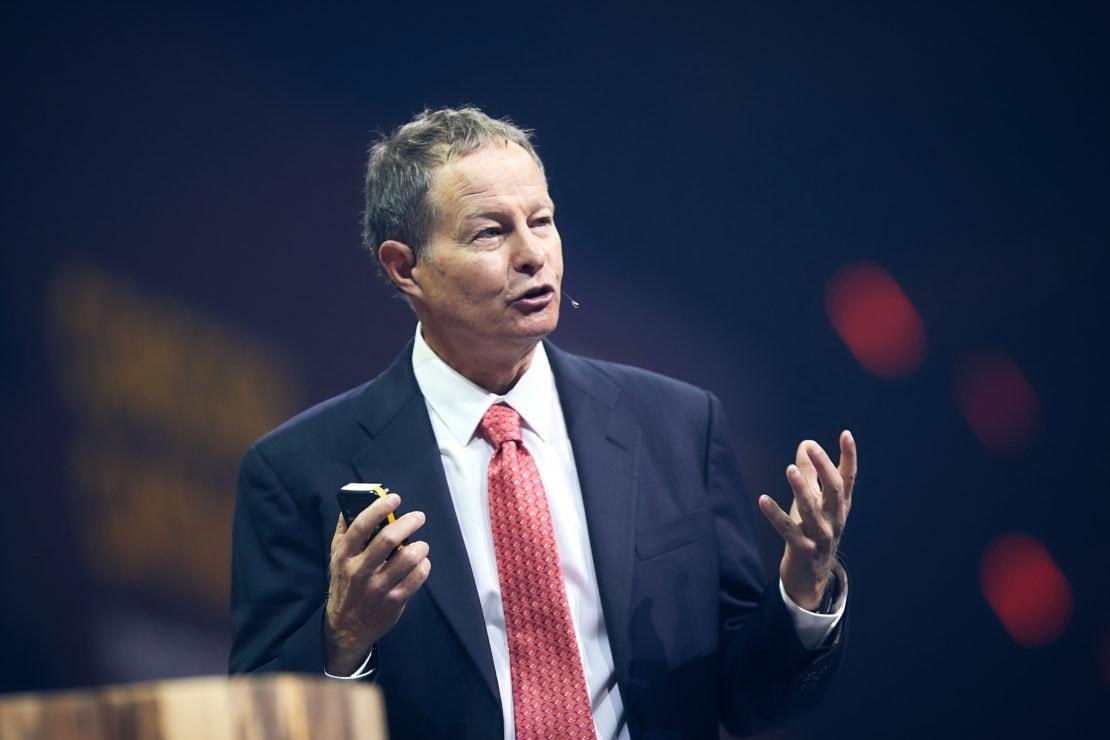26Sep2018
Whole Foods Co-Founder and CEO John Mackey delivered a strong endorsement for capitalism and economic freedom during his keynote as day one of the conference began to draw to a close.
“We didn’t see any real wealth creation as a species until the industrial revolution and capitalism were born,” said Mackey during his opening words. “200 years ago, 90% of the world’s population was really poor. Since then, the average income per capita has increased globally by a factor of 10. In our lifetimes, we’re going to wipe out poverty on our planet. That is what capitalism is doing, and it doesn’t get the credit it’s due. The key is economic freedom.”
Mackey continued to highlight the fact that poverty has been the standard state of the human race for most of history. Capitalism and business play a key role in ending poverty by driving continual wealth and value creation. As value creation is not a finite resource, value-driven growth centred around voluntary exchange does not inherently steal wealth from others. Instead, the created value is entirely new and adds to the overall economy. The barrier to economic prosperity, growth and the eventual eradication of poverty is therefore not unequally distributed wealth, it is the uneven distribution of economic freedom.
The high levels of economic freedom found in countries such as Hong Kong, Singapore and New Zealand and Scandinavia have lead to the development of strong economies capable of investing in public services that support citizens, promote upward mobility and continually lower poverty levels. The region also received significant praise from Mackey for its extensive welfare systems, free education and healthcare provision. Iceland and Denmark in particular recently placed higher than the US on the economic freedom index at 11th at 13th places respectively, with the US currently occupying 18th place in 2017.
A shift towards capitalism in developing countries and growing digitalisation has increased the speed at which new business ventures can create value in new market segments, growing the global economy and in turn generating more wealth for citizens. Over the past 50 years, the percentage of lower income families in the US has reduced from 38.7% to 30.2% today, with the percentage of high income families increasing from 8.1% to more than 25%. The trend of upward mobility in terms of income is a key feature of mature capitalist economies, which is already being replicated in developing nations. The end of poverty is within site.


